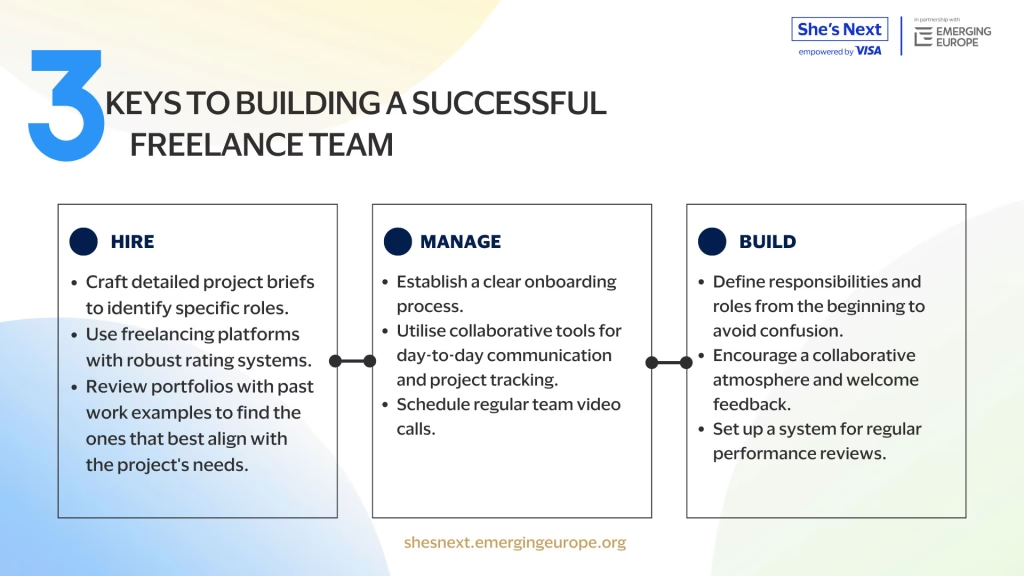
Mastering the Gig Economy and Building a Freelance Team
The gig economy represents a seismic shift in the global workforce, offering unprecedented flexibility and entrepreneurial opportunities.
This modern business phenomenon allows female entrepreneurs to scale their ventures with agility, tapping into a worldwide pool of freelance talent. The benefits are manifold, including cost efficiency and access to diverse skill sets; however, challenges such as ensuring consistent quality and managing remote teams also arise.
Understanding the Gig Economy
The gig economy redefines traditional employment, favouring project-based engagements over permanent roles. This trend is propelled by digital platforms that bridge the gap between businesses and independent professionals.
For entrepreneurs, these platforms can be a gateway to niche experts and a means to overcome local skills shortages. They democratise access to opportunities, allowing one to build businesses without the constraints of geographical borders.
Hiring Freelancers
To effectively hire freelancers, start by crafting detailed project briefs that outline expectations and objectives. Use freelancing platforms with robust rating systems to gauge the reliability and quality of potential hires.
When reviewing portfolios, look for specific examples of past work that align with the project’s needs. Prioritise candidates who demonstrate strong communication skills and a proactive approach to problem-solving.
Managing Remote Contractors
Successful management of remote contractors is anchored in trust and structured communication. Establish a clear onboarding process to familiarise freelancers with your company’s culture and processes.
Utilise collaborative tools like Slack for day-to-day communication and Trello or Asana for project tracking. Schedule regular video calls to foster a sense of team cohesion and address any issues promptly. Be culturally sensitive and accommodate different time zones to create a harmonious working environment.

Building Successful Freelance Teams
When assembling a freelance team, clarity is key. Define responsibilities and roles from the beginning to avoid confusion.
Encourage a collaborative atmosphere where feedback is welcomed and valued. Set up a system for regular performance reviews and acknowledge the contributions of team members to maintain morale and motivation.
Legal and Financial Considerations
Before engaging freelancers, understand the legal implications.
Draft contracts that specify the scope of work, deadlines, payment schedules, confidentiality clauses, and intellectual property ownership. Familiarise yourself with the tax regulations concerning freelance work in your country to ensure compliance.
It is advisable to consult with a legal expert to tailor contracts to specific needs and protect business interests.
For female entrepreneurs, the gig economy is not just a trend but a strategic resource that can catalyse business growth.
By leveraging the flexibility of freelance talent, one can adapt quickly to market demands and drive innovation within the enterprise. Embrace this new paradigm with confidence, knowing it can empower you to reach new heights in your entrepreneurial journey.
New Free Courses — Made for Ambitious Women Entrepreneurs!
It’s time to grow smarter, adapt faster, and take your business global.
Explore two powerful courses available exclusively to She’s Next members:
The Reinvention Masterclass for Start-up Founders
Beyond Borders: Building for Global Success
Enroll today — it’s free!






Responses